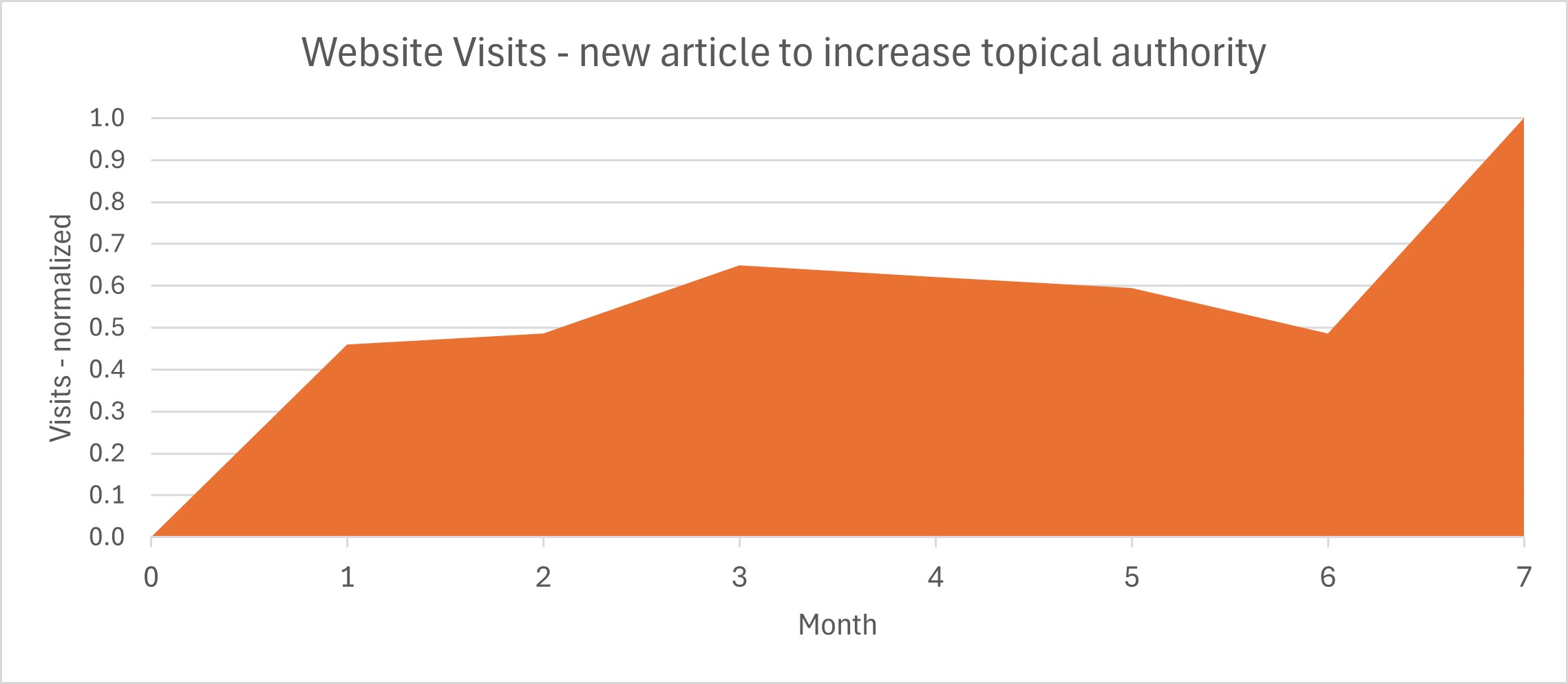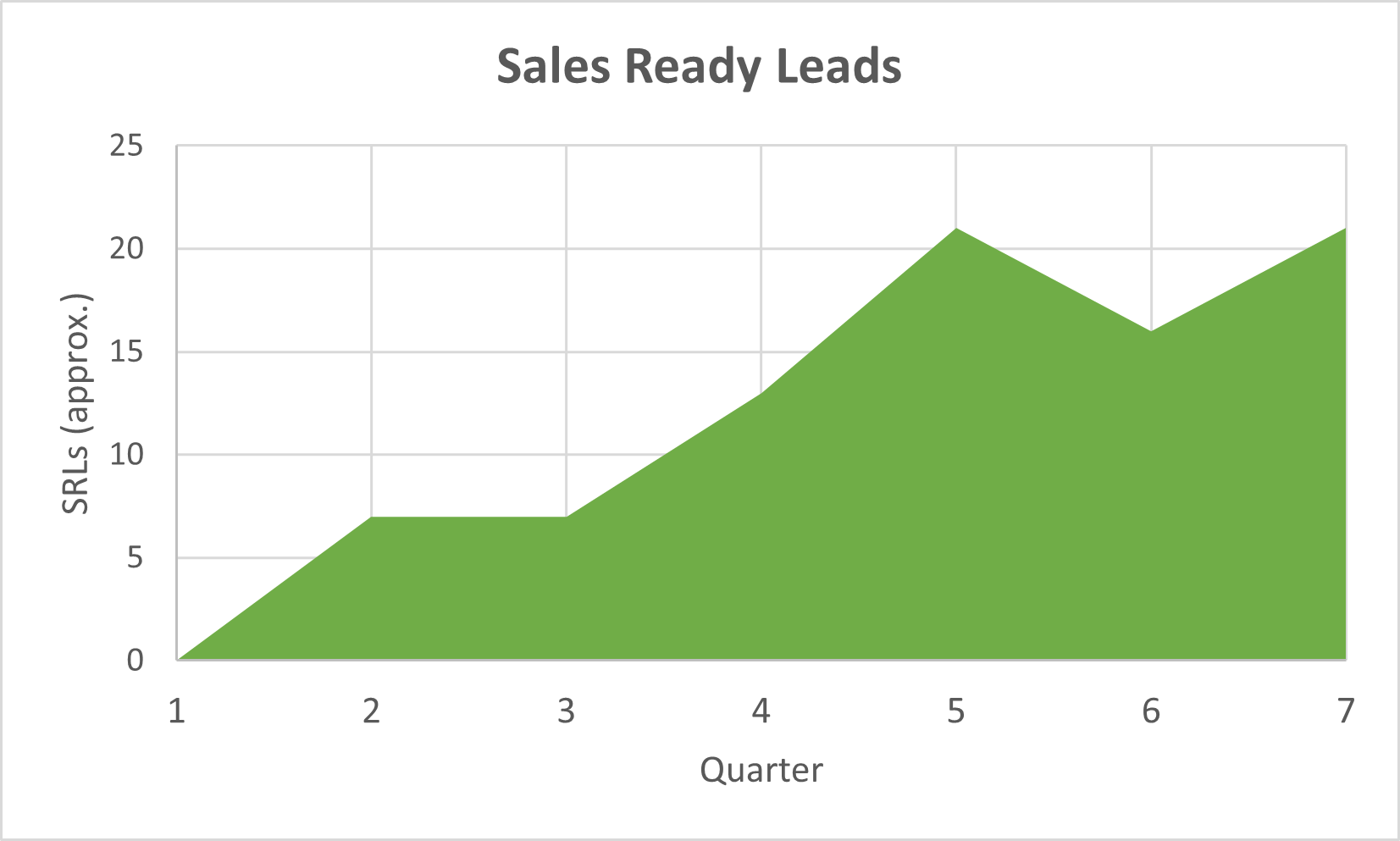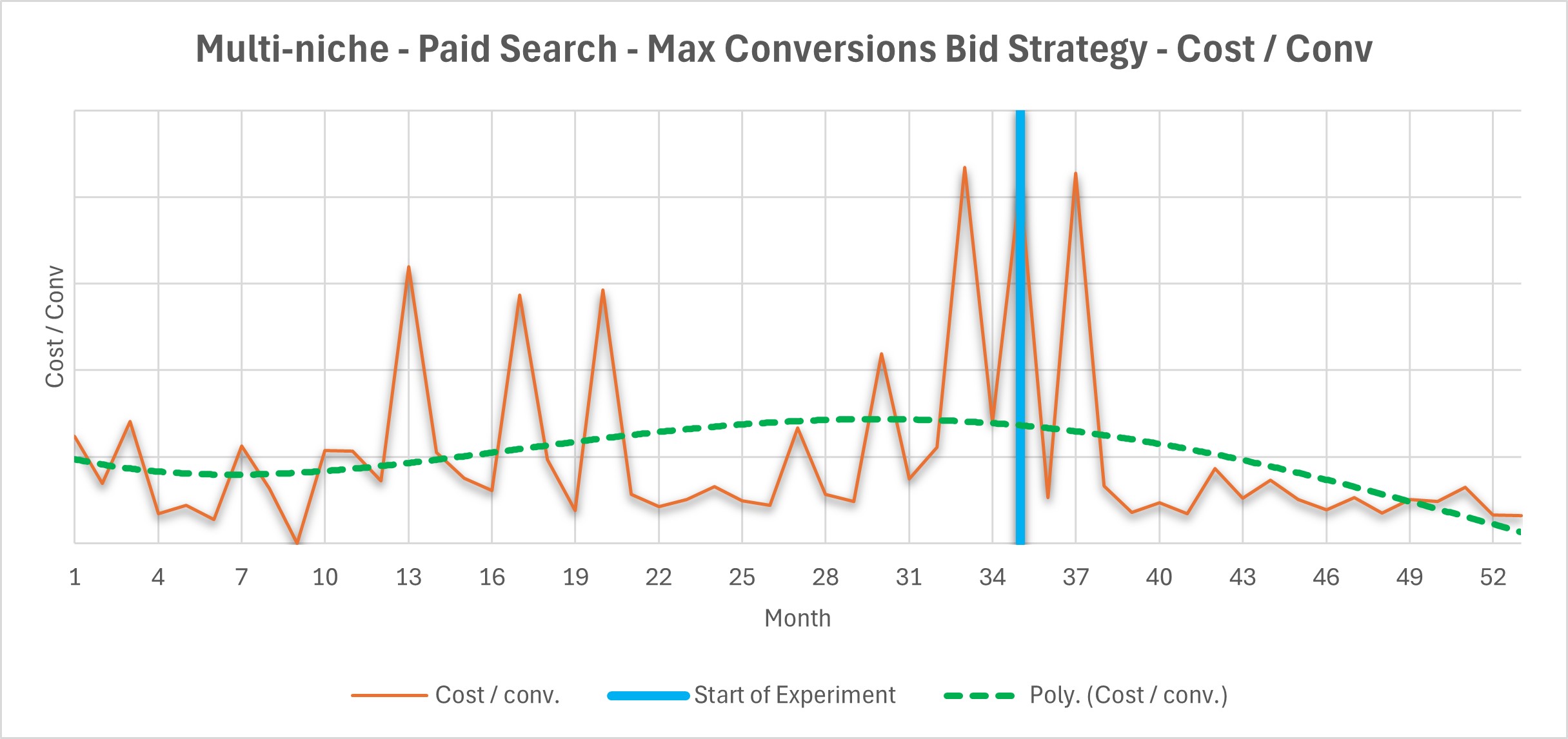Creating a no-BS marketing strategy for your engineering company
Thoughts from an engineer
Yeah, that’s right, I’m an engineer… at least I used to be. Though I’ve been told many times: “once an engineer, always an engineer”. I suppose at some level that’s true. I certainly mostly still think like an engineer, for better AND for worse 😊.
Last updated: January 26th, 2026
If you want to create a marketing strategy for your engineering company, there are 3 main things you need to decide on:
- Your primary marketing goal (awareness vs leads vs sales support).
- A niche to experiment with.
- Which marketing methods to deploy.
There are of course other realities beyond this, but that’s the core of what I consider a no-BS marketing strategy (if what you’re really looking for is a plan, check out this article: marketing plans for engineering companies).
Let’s discuss each of these a bit….
Your primary marketing goal – awareness vs leads vs sales support
This one is quick, but still important.
You want to be clear on your primary goal.
These questions should help you determine your primary marketing goal:
- Do you already see enough leads and what you really need is to support the sales team with content that will facilitate the sales process?
- Do you just need more people to be aware that you exist so that they become more familiar with you over time as needs arise?
- Or do you need sales ready leads so that your sales team has opportunities to try to win?
These goals aren’t mutually exclusive. There will likely be overlap between the three, which means you stand to get some amount of cross-pollination.
However, the content you produce, and marketing methods you employ, will vary based on which of these three overarching marketing goals you choose to focus on.
Your focus can, and probably should, change over time. But, unless you’ve got several hundred engineers or more, you probably can’t afford to be focusing on all three at once.
My guess is that if you’re a company has less than a few hundred engineers, you’ll probably want to focus on sales ready leads.
Selecting a niche
This is crucial in my opinion.
What do I mean by “niche”?
Essentially, I mean narrowing / focusing how you market yourself as a company in a manner that your potential customers care about.
Why do you need a niche?
Mostly because you want your potential customers to understand why they should consider you over other engineering companies they come across. You basically want to differentiate yourself to reduce competitive pressure.
Let’s be clear: selecting and implementing a niche is an experimental process. You may or may not stick with one of your initial niches in the long run. You test the market to see if you’ve found a sweet spot, or at least a “good enough” spot.
The main factors that’ll likely impact your success with a niche include:
- Your experience / capabilities in the market,
- Your understanding of your customers,
- Your ability to convey information in the form of content.
As a data point for you, here are the results of a poll from RocLogic’s website that illustrates the various reasons that people are hesitant to select a niche:

I know this can be challenging. You’ve got a bunch of engineers that are good at solving problems. They’ve got a bunch of tools in their toolbox. They can build a lot of things.
I’m not saying that you can’t or shouldn’t do work beyond what you market.
What I’m saying is, for marketing purposes, you need to focus your energy on a small number of things relative to the various problems you can solve.
Assuming you’ve got less than a few hundred employees, you probably don’t want to market yourself as just a generic engineering company that can develop X (where X is the high-level world that your company plays in, whether that’s industrial automation, software development, product design, etc). You’ll be swimming in a sea of companies that look just like you.
You may need to go multiple layers deep, and possibly include more than one dimension to create a niche.
You’ll likely wan to select a niche based on your risk tolerance as it relates to:
- Solving real problems – Where do you add the most value to a significant subset of your customers?
- Market size – Do you believe there are a significant number of companies that have these problems? Are they willing to pay you enough?
- Differentiation – Where are your strengths relative to others in your broader space?
- Passion – Are a significant subset of your employees actually interested in what they’re doing and why they’re doing it?
- Finding potential customers – Do you have some idea of where to find potential customers within this niche?
- Engaging potential customers – What do they care about? What do they need / want from you? How can you build trust?
Selecting marketing methods
The easiest way to go about this in my opinion is to abstract a layer. Decide whether you primarily want to focus on inbound methods or outbound methods for now. Notice I said “primarily”. You don’t need to exclude the other entirely, but you need to focus. So pick one. Your culture / leadership’s personality likely already pushes you toward one or the other.
Two philosophies – Inbound and Outbound
Inbound – Inbound marketing is focused on positioning yourself such that when someone has a need, they find you. Common methods are SEO (organic search), PPC (paid search), and the newcomer: AI (e.g. ChatGPT, Perplexity, Gemini). RocLogic is focused on inbound marketing.
Outbound – Outbound marketing is focused on putting yourself out there in people’s faces with the thought that what you have to say is so interesting that some of them will keep listening. It’s asynchronous to their needs, and potentially interruptive. This includes methods like direct mail, cold outreach, networking, and trade shows.
How many marketing methods?
You’ll likely want to select a single primary marketing method, and potentially one or two secondary methods. This encourages you to focus. As a small’ish engineering firm, there are too many methods out there for you to try to do all of them well.
Selecting a primary marketing method can be as easy or as exhausting as you want to make it. There are lots of options, some of which I think are better suited as secondary methods, while others are likely better candidates as primary methods.
Marketing methods for consideration:
- Content
- Organic Search (i.e. SEO)
- Paid Search
- AI visibility
- Partner channel
- Referral
- Social media (specifically LinkedIn)
- Networking
- Tradeshows
- Account-based Engagement
Content
Content marketing is interesting. People talk about it like it’s a complete method on its own.
I disagree.
It’s fundamental to most marketing methods, yet isn’t really complete on its own. It requires some other method to get the content in front of your potential customers. Just creating content and not employing some other method to try to get potential customers to see it is a bad idea.
Of the methods listed, referrals and networking probably require the least content overall, but even they should incorporate minimal content to facilitate validation.
Content is appropriate for awareness, lead gen, and sales support.
See:
Organic Search (SEO)
Organic search (i.e. SEO) is a great concept, and one of my preferred methods (a subset of inbound). The basic idea is so simple: people search for something and hopefully you show up in the search engine’s organic search results when it makes sense for you to.
If only it were that easy.
Search algorithms are wildly complex. It’s a gigantic, machine learning, black box. The algorithms evolve quickly. It’s important to try to keep a pulse on how search engines are evolving.
Organic search is worth considering as a primary method for awareness and lead gen.
See:
Paid Search
I have a love-hate relationship with paid search (a subset of inbound).
The cool part is that you can usually gather feedback from the market much quicker than with organic search. It’s also convenient that you can turn it on or off quickly.
The downside is that it’s gotten pretty expensive (particularly Google Ads). It can also be very frustrating when the platform pulls the rug out from under you, making sizable changes to how things work.
Paid search is worth considering as a primary method for lead gen.
See:
AI visibility
The goal here is to show up in AI-based search (e.g. ChatGPT, Gemini, Google AI Mode, Perplexity, Claude) for topics of interest.
As of mid-2025, this is a very volatile method. At a high level, the concept is very similar to trying to show up in search engines. However, since an AI prompt is so much more involved and nuanced than a simple search in a search engine, there is a lot of corresponding nuance to showing up in AI-based responses. There are other important differences, but that’s good enough for the purposes of this article.
See AI visibility for engineering companies.
I’ve got mixed feelings about email.
On the one hand, you’ve got an earned audience that you’re communicating with directly. Maybe you can build a community(?). On the other hand, you’re just another email in their inbox, interrupting your potential customer from doing whatever it is that they actually want to be doing at that moment. You’d better be careful, and don’t waste their time.
I lean toward considering it as a secondary method, mostly focused on building awareness.
Partner channel
Great when they work. Painful when they don’t.
Frustrating when the partner changes the rules on you or makes you jump through too many hoops.
I’d generally consider this as a secondary channel for lead gen and awareness.
See partner channel sales & marketing tips.
Referral
Referrals are my favorite type of lead. And they probably should be yours as well. However, there’s only so much you can do before you’re essentially pushing on a rope.
I’d consider this as a secondary channel for leads.
See How to encourage referrals when the work you do isn’t super remarkable.
Social media (specifically LinkedIn)
I’m not a huge fan of social media.
I think LinkedIn as a platform is great.
I like the concept of getting people with common interests and problems talking to each other. I think that’s a good thing.
The problem I see is that there’s too much noise, which causes people to start behaving in a more sensational “eye catchy” way to stand out from the crowd. Often times (especially in engineering) it’s the quieter, more thoughtful / deliberative people that have some of the most useful things to say.
LinkedIn is worth considering for awareness as a primary or secondary method.
See Social media for engineering companies.
Networking
When you’re first starting out and it’s only you and a couple other engineers, I think networking can be great, assuming you’ve got the right personality that easily engages people and doesn’t suck the life out of you.
In this scenario, it’s worth considering as a primary method for lead gen. After you grow beyond a handful of people, it’s probably not very scalable.
Tradeshows
I don’t have much to say about tradeshows.
I think they can be great for large companies for building awareness.
I do think it’s important to keep in mind that the cost of having a booth designed will likely only be a small fraction of the total cost of producing the content, preparing for the show, and bringing several people with you to the show.
Account-Based Engagement (ABE)
ABE is a great concept. You figure out a small number of ideal customers (actual numbers can vary, but assume something on the order of 10 or so as a starting point), and you target them directly.
This is great in theory. You know which companies you’re set up to provide the most value to and you try to engage them so that you can help them.
However, ABE is more appropriate for companies with sophisticated and strategic sales, marketing, and leadership in place, or for those that have strong relationships with a partner channel that has such capabilities. If one of these scenarios applies to you, or you’re feeling super ambitious, it’s worth considering for lead gen and sales support. Probably as a secondary method to start.
See ABE vs inbound.
Next Steps
- Prepare for change. Here’s how:
- Get into an experimental mindset. This is marketing. When done well it’s through a continuous set of rough experiments.
- Make sure you have something to measure, even if it’s indirect or hard to attribute.
- Make it easier to publish content on your website.
- Streamline your content creation workflow.
- Stop planning to death and start moving. Engineers love to plan. That’s great. Moving without direction is not smart (you’ll churn indefinitely without having a clue where you’re trying to get). Not moving until your marketing direction is completely nailed down is not smart (you’ll be too slow).
That’s a lot to digest. Want to talk through some of this? Feel free to reach out for a chat.
Want to see some case studies?
Quick poll – Vote to see how your peers voted
(Poll launched 1/29/26)
If you’re deep in learning mode, check these out:
- How to Sell Engineering Services
- Marketing for engineering consulting companies – tips and insights
- How to improve lead focused marketing for engineering companies
- Lead generation for engineering companies – tips and insights
- Marketing plans for engineering companies
- Marketing problems vs fundamental business problems
- Why inbound marketing experiments fail
- 5 roadblocks that stop tech services companies from moving forward with their marketing
- Marketing ideas for engineering companies
- Marketing for engineers – transitioning from engineering to marketing
- Inbound marketing strategy for industrial engineering services companies – 23 niches explored
- Inbound marketing for civil engineering firms
- What should engineering firms consider when choosing a marketing partner?







